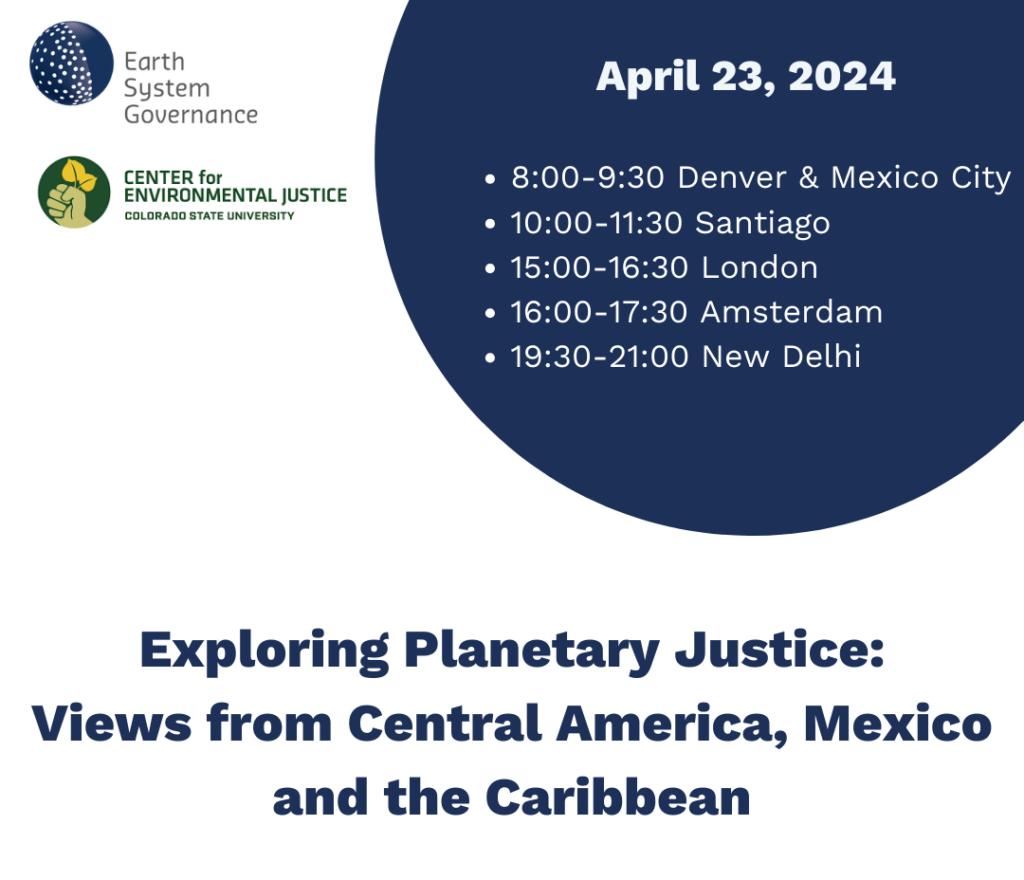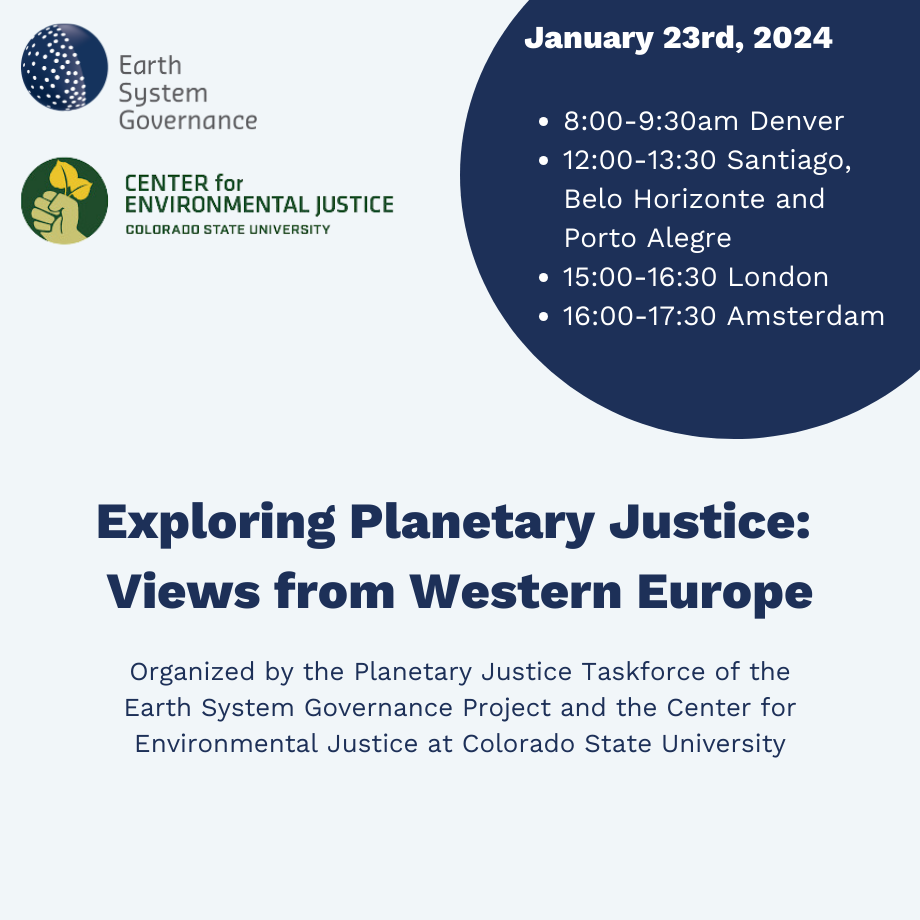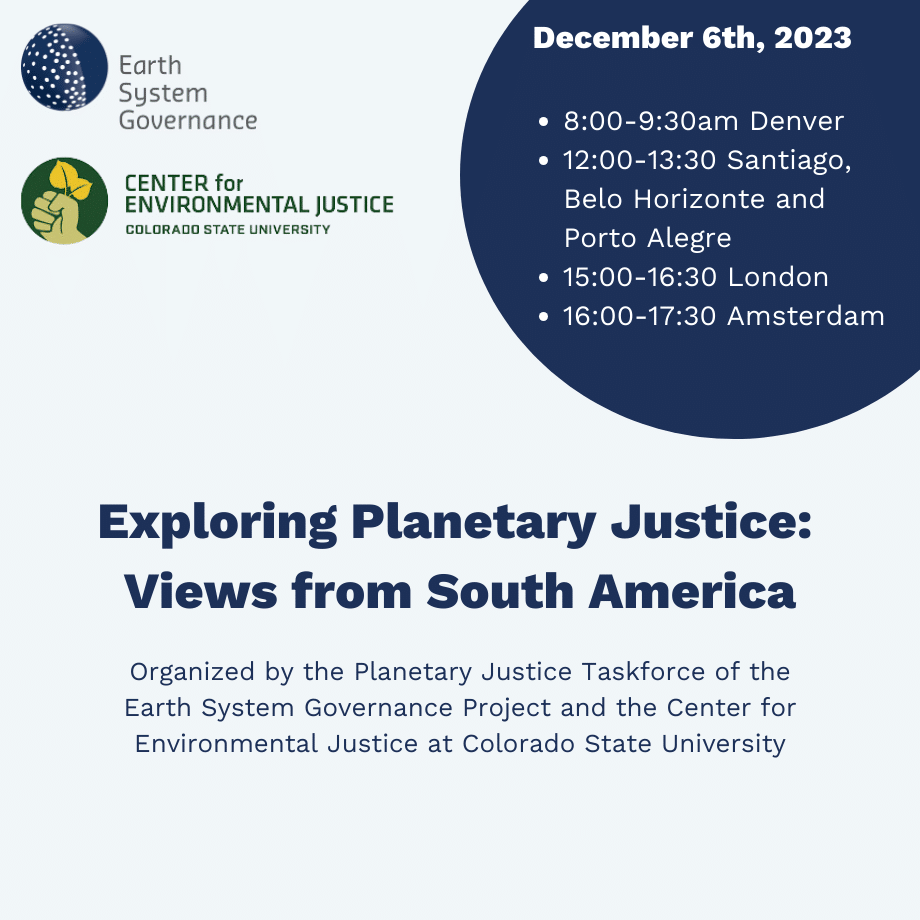We invite you to the Colorado Conference on Earth System Governance to be held 17-20 May 2011 on the campus of Colorado State University in Fort Collins, Colorado, USA. Jointly hosted by the Environmental Governance Working Group and the School of Global Environmental Sustainability at Colorado State University along with the Earth System Governance Project.
Key Dates
– Deadline for paper abstracts: 15 September 2010 (extended deadline)
– Notification of acceptance: 15 November 2010
– Full papers due: 1 May 2011
Conference Themes
One of the most significant challenges of earth system governance is the need to create new types of linkages, crossing boundaries and building bridges to connect research on social and ecological processes operating across different scales, between the social and naturalsciences, and between scholars and practitioners working in the global North and South. The Colorado Conference will advance the Earth System Governance project’s research agenda by bringing together scholars from a wide range of disciplines as well as practitioners to address these linkage issues. The conference will be organized around four types of linkages that cut across the “5 As” at the core of the Earth System Governance Science Plan with the expectation that these discussions will open new and fruitful areas of research and collaboration on earth system governance. The four conference themes are:
Linking across Scale: Many problems related to earth system transformation involve social and ecological processes operating at different spatial, temporal, and social organizational scales. We invite papers that address these cross-scale and multilevel dimensions of earth system governance. For example, what theoretical concepts, frameworks, and methodologies can be used to analyze and understand how social and ecological processes interact across scale? In what ways do innovations or changes in governance arrangements across scales and levels of political jurisdiction produce more or less accountable, adaptive, accessible and equitable processes/outcomes? What obstacles to earth system governance are created by conflict rooted in the multiscalar dimension of social and ecological processes?
Linking the Social and Natural Sciences: Earth system governance research must consider social as well as ecological systems. Collaboration between scholars in the social and natural sciences is essential but often difficult in large part because of differences in methodological traditions. We invite papers that explore ways of better integrating the social and natural sciences in the study of earth system governance. For example, what are the ecological impacts of different architectures of earth system governance? What methodological and conceptual tools can be used to integrate insights from research on governance and institutions into understandings of the earth as a complex coupled social-ecological system?
Linking Research to Practice: Earth system governance research must engage diverse individuals who participate in the formal and informal rule-making processes and actor networks that comprise earth system governance. How may research on earth system governance inform policy making and practice? How might the knowledge and insights of practitioners be better communicated to researchers? What research and exchange strategies can be used to build relationships between scholars and practitioners? Is “action research” an effective strategy for linking research and practice?
Linking the “5 A’s”: Some of the most important questions of earth system governance lie at the intersection of the five analytical problems at the core of the Earth System Governance science plan. We invite papers that explore these linkages and interactions. For instance, how can equity and fairness concerns (Allocation and Access) be addressed in the design and implementation of environmental and development institutions (Architecture)? In what ways can private actors (Agency) be held accountable (Accountability) for the social and ecological effects of their decisions? What types of social conflicts are created (Allocation and Access) by different ways of structuring efforts (Architecture) to enhance the resilience of social-ecological systems (Adaptiveness)?



